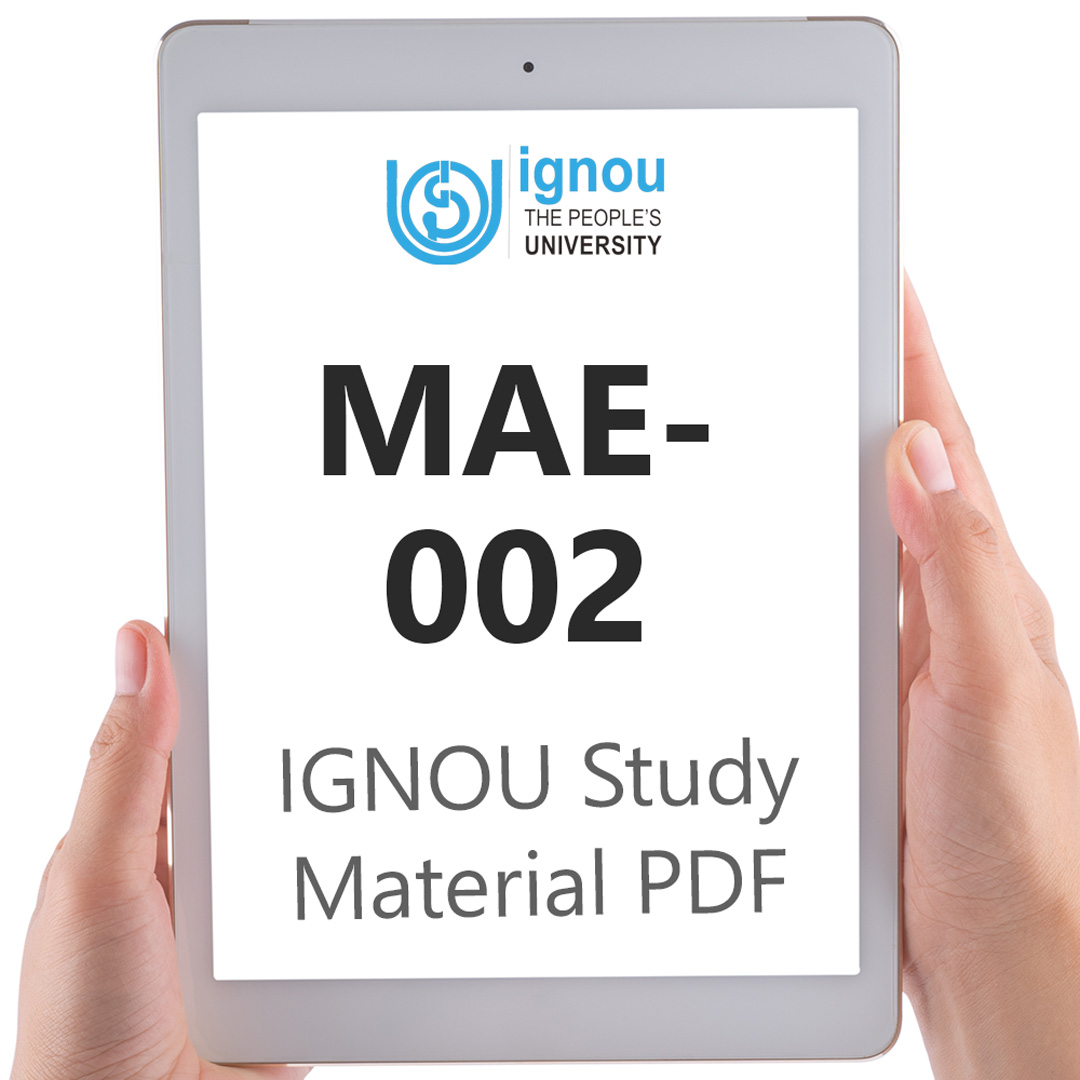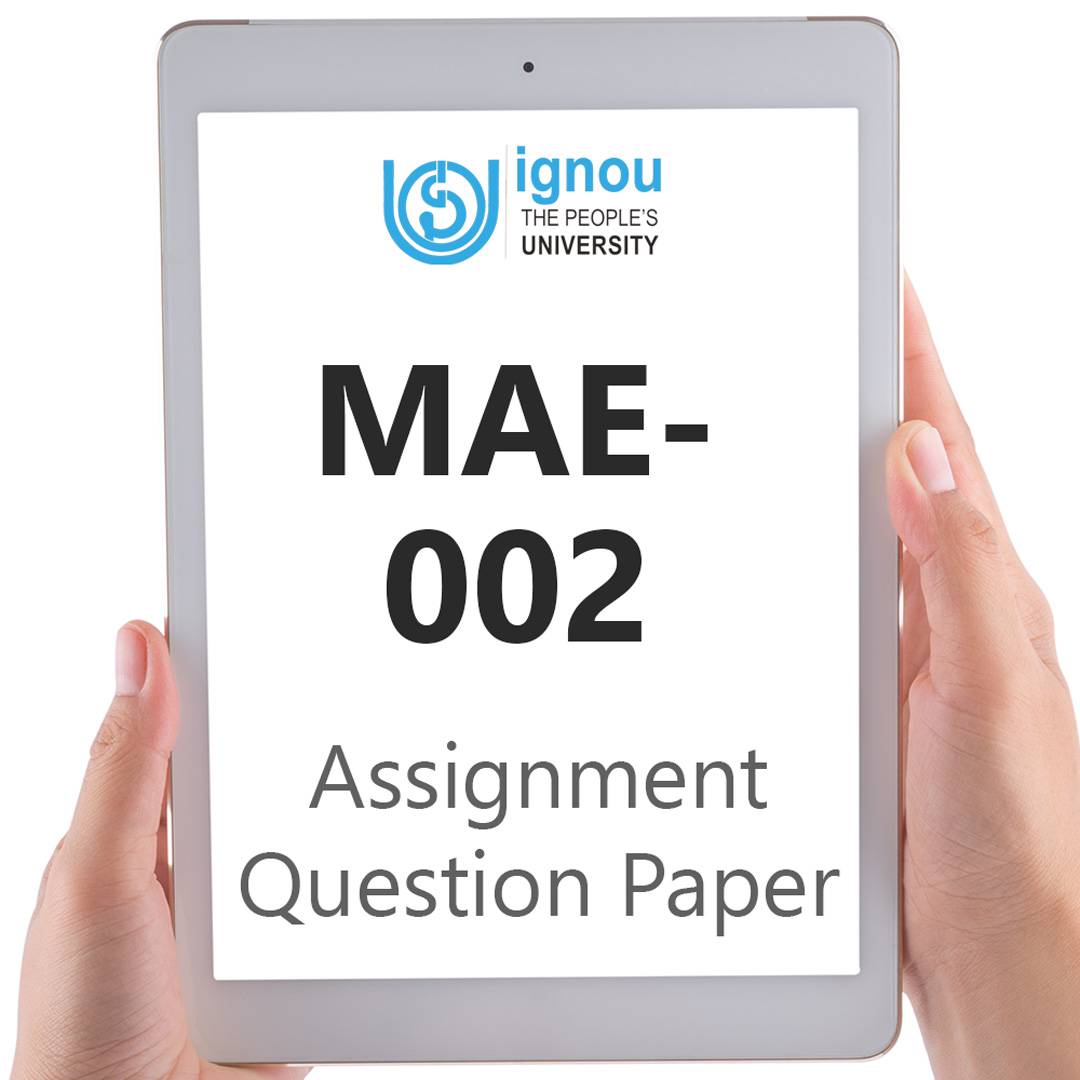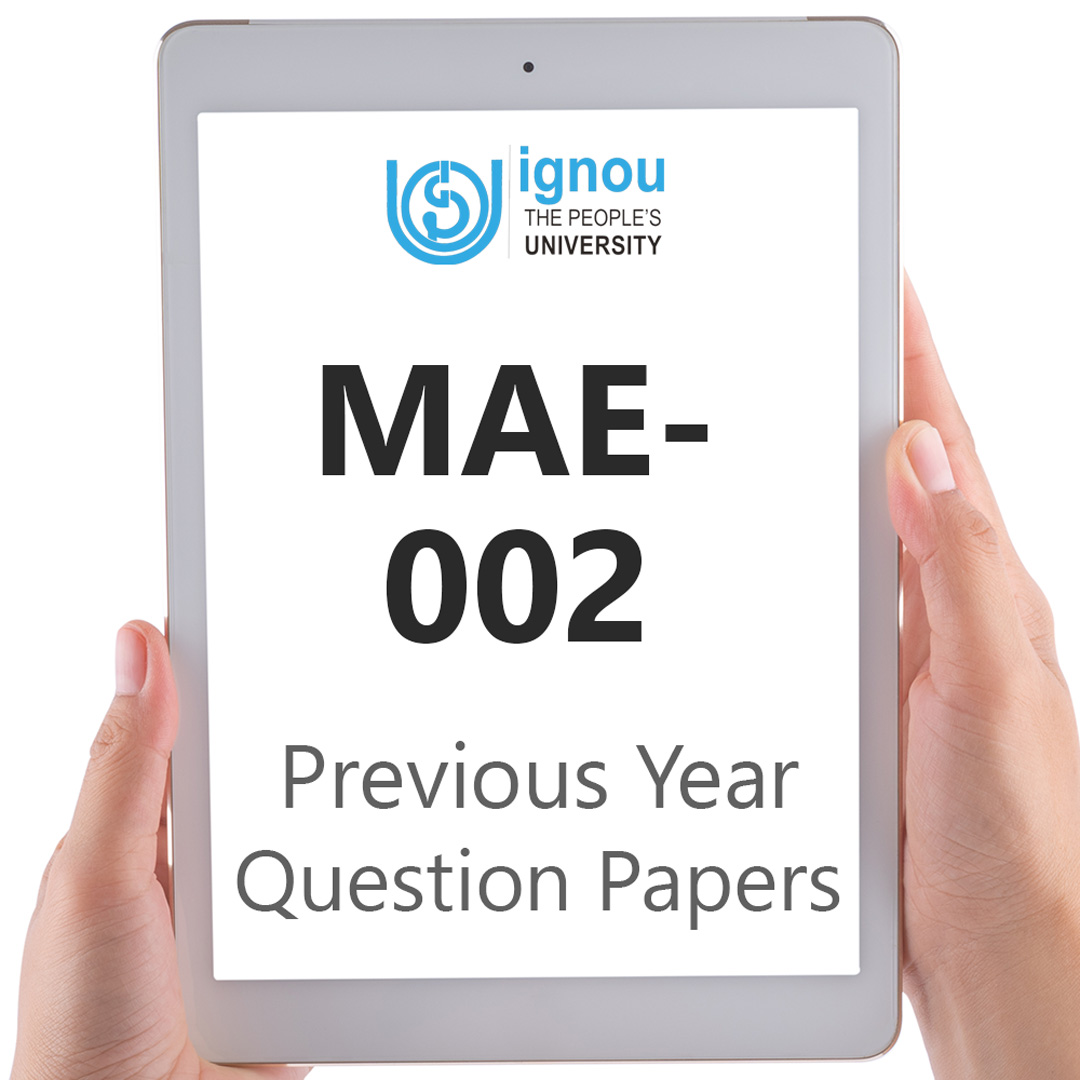If you are looking for MAE-002 IGNOU Solved Assignment solution for the subject Policy Planning and Implementation of Adult Education in India, you have come to the right place. MAE-002 solution on this page applies to 2023 session students studying in MAEDU, MAAE, PGDAE, PGCAE courses of IGNOU.
MAE-002 Solved Assignment Solution by Gyaniversity
Assignment Code: MAE-002/TMA/2023
Course Code: MAE-002
Assignment Name: Policy Planning and Implementation of Adult Education in India
Year: 2023
Verification Status: Verified by Professor
Answer the following questions in about 500 words each.
a) Explain need and significance of community involvement in implementing adult education programmes.
Ans) Community involvement in implementing adult education programs is crucial to ensure the success of such initiatives. Adult education programs are aimed at providing education and training to individuals who are above the age of 18 and have not completed their formal education. The primary objective of these programs is to empower individuals with skills and knowledge that can help them enhance their career prospects and lead a better life. The involvement of the community in implementing adult education programs is necessary for various reasons
Firstly, community involvement helps in identifying the needs and requirements of the target audience. The community members can provide valuable insights into the challenges faced by individuals in their day-to-day lives and the skills and knowledge required to overcome these challenges. They can also help in identifying the most appropriate delivery methods and modes of instruction for the program.
Secondly, community involvement helps in building trust and credibility for the adult education program. When the community members are involved in the planning and implementation of the program, they become stakeholders in its success. This, in turn, leads to greater participation and support for the program from the community. When the program is seen as a community initiative, it is more likely to be viewed positively by the target audience, leading to greater enrolment and participation.
Thirdly, community involvement helps in overcoming barriers to access and participation in adult education programs. There are several barriers to access to education and training, such as lack of transportation, childcare facilities, and financial constraints. When the community is involved in the program, it can help in identifying and addressing these barriers, making it easier for individuals to participate in the program. For example, the community can help in arranging transportation for individuals who do not have access to it or provide childcare facilities for individuals with young children.
Fourthly, community involvement can help in promoting the relevance and usefulness of the adult education program. When the community is involved in the program, it can help in designing the curriculum and course content to be more relevant to the needs and requirements of the target audience. This, in turn, can make the program more attractive and useful to the participants, leading to greater retention and success rates.
Finally, community involvement can help in sustaining the impact of the adult education program eventually. When the community is involved in the program, it can help in identifying and addressing issues that may arise after the program has ended. For example, the community can help in providing support and guidance to the participants after they have completed the program, helping them apply their newly acquired skills and knowledge in their daily lives and careers.
In conclusion, community involvement is critical to the success of adult education programs. By involving the community in the planning and implementation of the program, it is possible to identify the needs and requirements of the target audience, build trust and credibility for the program, overcome barriers to access and participation, promote the relevance and usefulness of the program, and sustain the impact of the program in the long run. As such, community involvement should be a key consideration in the design and implementation of adult education programs, to ensure their success and impact.
b) Discuss different aspects of the ‘post-training phase’ of participatory training in adult education.
Ans) Post-training phase can be divided into follow-up and report writing.
Follow-up of Training
The follow-up to the training programme is to continue learning. Participants employ the skills and ideas they learn in each training class. Further assistance may be needed. Learners and trainers do more than follow-up after training. After a training programme, follow-up helps people learn more and develop over time. Thus, follow-up refers to activities done shortly after training to aid learning. Follow-up and report-writing are options after training.
A training program's follow-up can be used for many things, such as:
Follow-up provides the learner with assistance, encouragement, knowledge, and resources to apply their instruction.
It helps identify post-training learning needs. Identifying new topics keeps learning going.
Follow-up measures how the training programme affects learners, their jobs, and their organisations. This inspires future training methods.
Follow-up lets students apply their training.
Broadly, follow-up can be strategic. If training has larger social change goals, follow-up can be used strategically to build unity among activists with similar goals and the organisation, keep the process of building cadres and forming networks going, and strengthen the formation of small groups and help build a bigger, stronger organisation.
Methods of Follow-up: There are different ways to do follow-up. It can be planned in a different way for each learner. It can also be done for the whole group of learners or for a smaller group chosen by the teacher.
Follow-up methods depend on the goal and the group of people being taught, as follows:
Face-to-face training and student interactions. Learners or trainers could visit a venue, meet alone or with trainers, or meet as a group. It could also signify advanced training, supplemental learning resources, an apprenticeship, etc.
Methods should depend on student needs and resources. Project holders may prefer indirect approaches, but literate, poor rural and urban learners may need direct methods. Direct and indirect strategies usually operate together.
Plan a follow-up carefully. It is deliberate. Plan ahead when designing the programme. After the programme, learners can discuss next actions.
Report Writing
Report writing is tedious. The report is usually considered valuable only for administrators and scholars. Report writing is a basic instrument that describes the event, its aims, substance, procedure, and approach. Report writing preserves events and inspires new ideas. Organizational memory and follow-up include reports.
Types of Reports: Even though there are no specific types of reports, they can be grouped together for training purposes into:
Process-based Training Report.: Process-based reports detail events. In addition to quantitative data, the report shows how the trainers achieved the goals. It also teaches the reader the procedures and techniques. This category includes most case-study-based training reports. This report details method and content. Trainers and others who wish to know how a training programme was run and how it achieved a goal might utilise this report.
Data-based Training Report: Data-based event reports inform readers. It details the training's objectives, procedures, materials, and instructors. This report emphasises facts. These reports are usually for contributors, government departments, administrators, etc., who want to know who will attend, what will happen, and how the money will be spent.
Research-based Training Report: The research-based training report explains why training events matter. This paper investigates trainers' basic learning to achieve a goal. This research report analyses the research procedure. These reports help researchers understand trainers' methods. These reports can also assess the training program's efficacy and suitability for future use. A report may include all three forms.
c) How can the resource support structures of adult education in India be strengthened? Give your suggestions.
Ans) Adult education is an essential component in India's overall growth as a culturally and linguistically diverse nation with a population of over 1.3 billion people. However, in order to improve both the quality of adult education and its overall effectiveness, it is necessary to fortify the resource support systems that are now in place in India. In my response, I will offer some recommendations with the goal of improving the resource support systems of adult education in India.
Increase Funding: The amount of money set aside by the government for adult education needs to be increased. The successful operation of programmes designed to educate adults is dependent on a sufficient amount of finance, which can assist in the availability of resources, infrastructure, and trained personnel. It is recommended that the government give serious consideration to devoting a sizeable portion of its budget to adult education programmes, and any funds that are allotted should be utilised wisely.
Community Participation: Adult education programmes cannot be successful without the participation of the communities they serve. As a result, the government ought to encourage communities to participate actively in adult education initiatives. It is the responsibility of the federal government to incentivize communities to participate actively in adult education programmes by granting tax breaks or financial assistance, for example.
Skilled Instructors: The success of adult education programmes is contingent upon the availability of instructors who are both trained and skilled. It is the responsibility of the government to ensure that all of those who teach adult education have the necessary experience and credentials. It is possible for the government to offer training programmes for teachers, as well as financial incentives, for individuals who are interested in acquiring further certifications.
Modernization of Curriculum: The curriculum of adult education programs must be updated regularly to keep up with the changing needs of society. The government should encourage the development of modern and innovative curricula that are relevant to the needs of adult learners. The curriculum should be flexible to cater to the diverse needs of the learners.
Promote Technology: The efficiency of educational programmes geared toward adults can be significantly boosted with the help of modern technology. The federal government ought to encourage the employment of various technological tools in the various adult education programmes. For instance, the utilisation of digital platforms, such as online courses and video lectures, can assist in reaching a greater proportion of adult students.
Establish Learning Centers: In order to guarantee that residents in rural areas have access to educational opportunities, the government should create learning centres in those locations. These centres might have access to resources like computers and books that are essential to the educational process. In many rural locations, access to education is hindered by a number of obstacles; nevertheless, learning centres can assist remove some of these obstacles.
Collaboration with NGOs: In order to improve the resource support structures of adult education in India, non-governmental organisations (NGOs) have the potential to play a key role in the process. The government and non-governmental organisations (NGOs) ought to work together to supply adult education programmes with resources, facilities, and instruction. The locations that are in need of adult education programmes could also be identified with the assistance of non-governmental organisations (NGOs), who could also provide help for the execution of such programmes.






